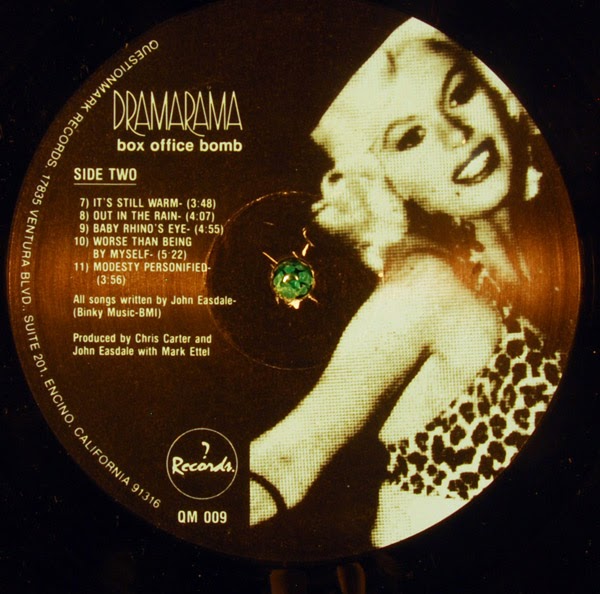Weird. It's a word one hears a lot when discussing Frank Zappa. He looks weird. He talks weird. His music is most definitely weird. His movies are weird. Even his name is weird.
Yeah, Weird absolutely fits Zappa.
But let’s be honest - the world needs someone to bring the weird. A world without weird can be boring and stagnant and decidedly scary. It would be like living in the fantasy land of Ronald Reagan, where every lawn is perfectly manicured, every meal comes in a foil-covered, molded aluminum tray, everyone wears clothing from the Sears catalog, and all the music sounds like a sterilized version of Paul Anka.
So yeah, weird is good. Especially in music. And Apostrophe (‘) is a fine example of just how much fun weird music can be.
Side 1:
|
  |
Side 2:
|
Zappa sets the tone of irreverence before you even drop the vinyl on the table, with a note on the back cover stating, This is an album of songs and stories set to music performed for your dining and dancing pleasure.
The first four songs cover the story of an Eskimo boy named Nanook who exacts revenge on a fur trapper for clubbing his pet baby seal by rubbing some of the deadly yellow snow into the trapper’s eyes. The trapper then hears a legend that the only way to reverse the effect is to make his way to the parish of St. Alfonzo, where Father O’Blivion just happens to be hosting a pancake breakfast.
After this silly string of songs Apostrophe (‘) settles in to some more heavy sounds, with the remaining songs showing a familiar Zappa blend of some jamming and groove with the requisite comically strange lyrics. Like many of Zappa’s songs, there are familiar themes running through both the music and the words. Things like a lot of overdubbing and complex percussion featuring instruments such as the marimba, and lyrical references to Zappa’s childhood health issues (for instance, the lyrics "You might not believe this, little fella, but it'll cure your Asthma too!" and “So take your meditations an' your preparations An' ram it up yer snout” in Cosmik Debris both allude to Zappa’s history of asthma and sinus problems), or just plain bizarre (the dialogue with the talking dog in Apostrophe’).
Of all the songs on Apostrophe (‘), Uncle Remus is still relevant today. It’s basically the epilogue to Trouble Every Day (from Freak Out!), and is a cutting look at the frustrating state race relations in the US:
I can't wait till my Fro is full-grown / I'll just throw 'way my Doo-Rag at home
I'll take a drive to Beverly Hills / Just before dawn
An' knock the little jockeys / Off the rich people's lawn
An' before they get up / I'll be gone, I'll be gone
 What really blew me away with this listen is that this album is only about 32 minutes long, but sounds like it is closer to 45. The songs just have this quality of being able to be so full.
What really blew me away with this listen is that this album is only about 32 minutes long, but sounds like it is closer to 45. The songs just have this quality of being able to be so full.As weird as Apostrophe (‘) may be, it’s easily the most accessible of all of Zappa’s albums – as shown by the fact it managed to reach #10 on the Billboard charts. But as non-threatening (or non-confusing) as it was, there is still a lot of Zappa going on here. And that is always a good thing.
Up next: A Canadian band in a very polite transitionary phase
















































